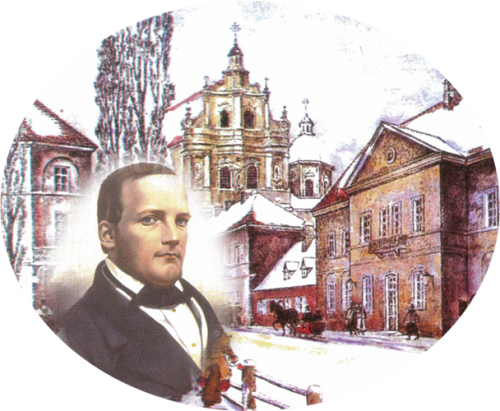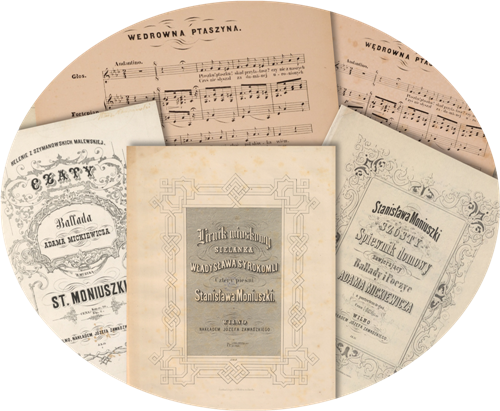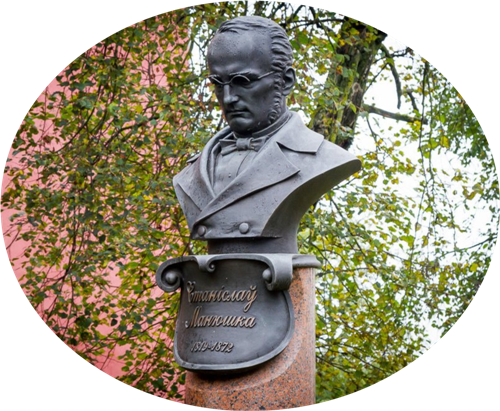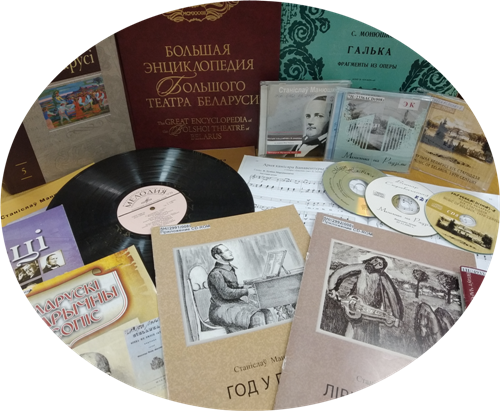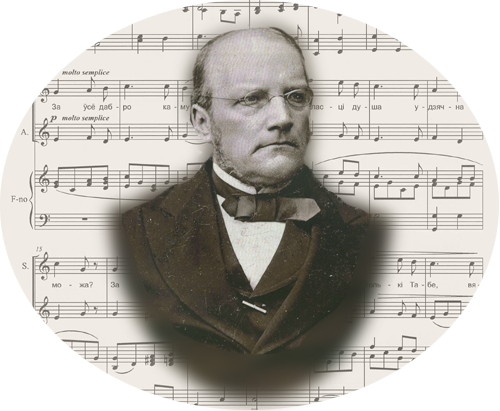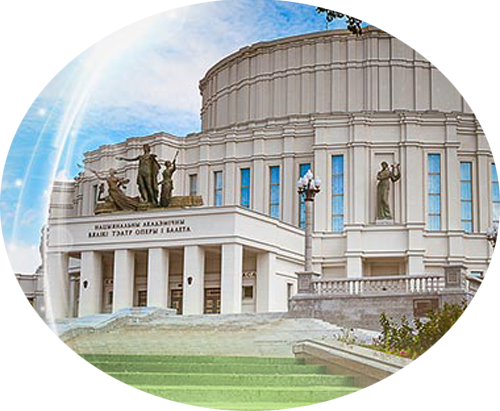Works by Stanislaw Moniuszko on the Belarusian stage
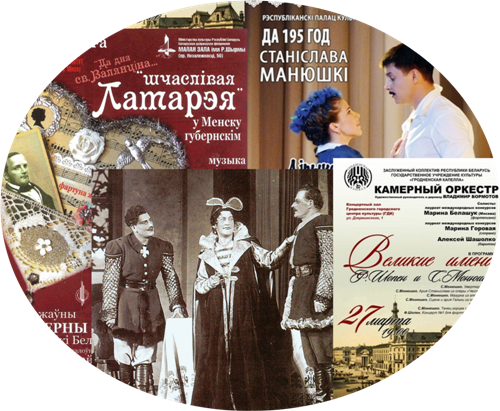
Moniuszko belongs to descendants, so he does not worry about the present and future experts’ judgment, but he needs to be felt, understood and loved. This means more than the applause.
Vladislav Syrakomlya
Speaking of the staging of Stanislaw Moniuszko’s works in Belarus, we must first focus on musical and theatrical genres, which are a significant part of the master’s legacy. These include comic operetta and grand operas, which are staged all over the world. Moniuszko’s music, combining picturesqueness and colorful imagery, is, in this sense, an ideal material for the stage.
After returning from his studies in Berlin, Stanislaw Moniuszko was full of energy and wanted to establish himself as a theatrical composer. Starting his career with light comedies, he lived and worked mostly in Vilna and Minsk. His earliest writings are the operetta Kontorschiki (Тhe Clerks), staged in Minsk in 1832, and the vaudeville A Night in the Apennines. According to recent studies, the latter was Moniuszko’s debut, staged first in Grodno in 1841, and then in Brest in 1858. Noteworthy is that a number of Stanislaw Moniuszko’s works were performed in Minsk earlier than elsewhere.
Of all early works of Stanislaw Moniuszko, the operetta The Lottery was the most often staged. It was repeatedly performed during the composer's life. In 1841, it was performed in Grodno City Theater by the Drama Artists Company of Vilna Theater under the direction of Wilhelm Schmidtkoff; in 1843, the opera was staged in Minsk. After Moniuszko’s death (1909), the operetta was staged in Nesvizh Town Hall by famous soloists from Warsaw under the direction of Stanislaw Kazura.
Nowadays, The Lottery was staged first in 2009 and then in 2011, on the occasion of the 190th anniversary of the composer. It was performed in Belarusian State Philharmonic Hall by the ensemble of soloists Classic-Avantgarde under the direction of Vladimir Baydov, State Chamber Choir, as well as Honored Artist of the Republic of Belarus Victor Skorobogatov, a connoisseur of Stanislaw Moniuszko’s oeuvre and Belarusian musical culture. Clara Moniuszko, a pianist and the composer’s descendant, was the guest of honor at the premiere.

"Idyll" by V. Dunin-Marcinkiewicz. Yulia (Zoya Belokhvostik). Director N. Pinigin
The opera Sielanka (Idyll) was a milestone in the development of Belarusian musical art. It debuted triumphantly in Minsk City Theater (now Europe hotel stands there), on February 9, 1852. This landmark opera was staged by Moniuszko together with Vincent Dunin-Marcinkiewicz and Konstantin Krizhanovsky. According to art historians, the chronology of the Belarusian professional theater starts with this staging. Dunin-Marcinkiewicz played the part of Nahum Pryhavorka, and the peasant chorus of his estate Lyutsinka, near the town of Rakov, sang at the opera. The play was a great success, as evidenced by the letter of Dunin-Marcinkiewicz to publisher Zavadsky: "Would you be so kind, my dear Sir, to post me, as soon as possible, forty copies of Sielanka, as Belarus furiously demands this work, and if I had at least three hundred copies, I would have sold them out." However, after the February premiere of Sielanka (Idyll), the authorities prohibited the opera for being performed in the "demotic language". So it had no longer been performed openly; the opera was staged secretly in private houses, clubs and halls in Slutsk, Bobruisk, Glusk, Vitebsk and Nesvizh.
Nowadays, the Idyll was staged in Yanka Kupala National Academic Theater in 1993, directed by Nikolai Pinigin, artist Zinovy Margolin and leading actors of the theater. Researchers found that the music of the opera was written by a team of authors including Stanislaw Moniuszko, Konstantin Krizhanovsky, Vincent Dunin-Marcinkiewicz and his daughter Camilla Marcinkiewicz. Unfortunately, only a small part of the opera survived. The well-known composer and musician, Vladimir Kurian, decided this question and wrote the music for the play Idyll. On this occasion, he noted: "If my music at least in some moments reminds Moniuszko, it is wonderful. That was my secret dream". Performed by artists of the Yanka Kupala National Academic Theater the opera Moniuszko received a second life, and with it the constant announcements, a lot of positive reviews and touring shows throughout Europe.
The famous Halka was first staged in Vilna in 1854, in Minsk in 1856, and then in Grodno. In the twentieth century, the Halka was also performed. The opera was staged in State Academic Opera and Ballet Theater in Minsk, 1975, by the Polish director of the Wroclaw, Boleslaw Jankowski. The major parties were performed by the soloist of Lodz Theater, Halina Romanowska, and the singer of the Silesia Opera in Katowice, Boleslaw Paulus. Lev Lyakh, a graduate of Belarusian State Conservatory, conducted the opera with a high musical accuracy and consistency of performance.
Sketches by E. Zhdan costumes to the opera "Halka"
Photos from the collections of the Museum of the History of Theater and Music Culture
The Haunted Manor was first staged in Belarus only in 1952. Critics wrote: "The opera sounded in the Belarusian language, with amazing sceneries depicting nature, a modest rural home and patriarchal family estate of Stefan and Zbigniew brothers. The viewer could easily recognize the motives of the native land." The famous Moscow musicologist, Igor Belza, noted the very good theatrical scenery by artist P. Maslennikov.
The opera in four acts with prologue was performed by Belarusian masters during the Days of Belarusian Art at the Bolshoi Theater in Moscow and was appreciated by the audience and critics in Moscow.
In 2013, we celebrated the 195th anniversary of Stanislaw Moniuszko. The first Belarusian staging of the lyrical comic opera Verbum Nobile was timed to this significant date. The premiere took place on May 30 and 5 June, 2013, in the Palace of Culture of Trade Unions. Later, the opera was staged in Mogilev, and then in Grodno, in the country’s oldest theater, which was opened more than two centuries ago by patron Antoni Tyzenhaus (now Grodno Regional Puppet Theater). The opera was staged by Gallery Chamber Music Theater. Verbum Nobile was translated into the Belarusian language by writer Darya Vashkevich. Conductor Ivan Kostyakhin rewrote the opera for a chamber music ensemble of nine players, which made the nineteenth-century work more contemporary and original.
Today, Moniuszko’s works are performed not only in the theater, but also on the concert stage. In particular, on October 9, 2008, Belarusian State Philharmonic Hall hosted a concert performed by the winners of international competitions, Tatiana Cybulskaya (soprano), Tatiana Molokova (piano), and Evgeny Vidanov (flute).
On December 22, 2011, the Chamber Hall named after Larissa Alexandrovskaya of the National Academic Bolshoi Opera and Ballet Theater of the Republic of Belarus hosted a concert Stanislaw Moniuszko in the Homeland, dedicated to the 20th anniversary of the Belarusian Capella. The soloists of the Opera and Ballet Theater of the Republic of Belarus, laureates and winners of international competitions and festivals performed pieces from Moniuszko’s operas The Haunted Manor, Idyll, The Lottery, The Countess, Halka, as well as songs from The Year in the Song and The Country Musician Playing The Lyre.
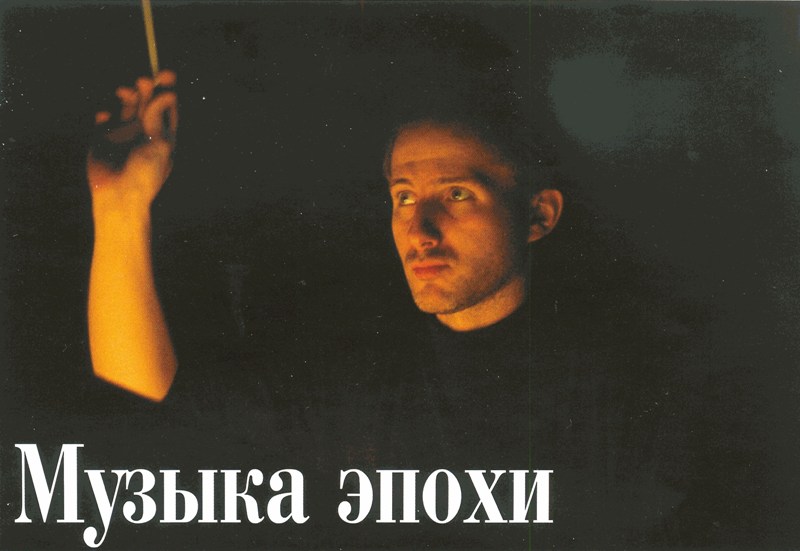
Conductor Ivan Kostyakhin
On April 24, 2014, the Chamber Hall hosted a concert titled Music of the Era, dedicated to the 195th anniversary of the composer. The program featured pieces from Moniuszko’s operas and vocal compositions, as well as the famous Halka.
Stanislaw Moniuszko’s music is like a light and airy watercolor. It has no insane flowering, but rather a quiet, unobtrusive beauty, which, once seen, will stay long in your memory. His music has the ability to give the peace of mind, to awaken positive emotions in people. It always invites you to join, not intrusively, but in a very intelligent manner.Ivan Kostyakhin
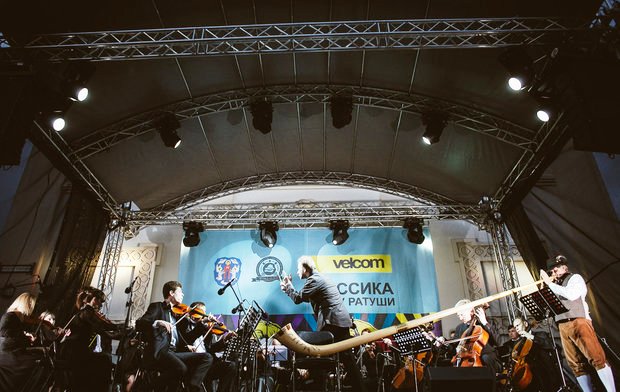
Classics near the Town Hall with velcom
The composer’s works were performed by a string quartet from Poland Altra Volta (Katowice), during the summer musical evenings “Classics near the Town Hall with velcom”. The overtures and arias from Halka, Verbum Nobile and The Haunted Manor were played by MuzzicDom Orchestr under the direction of conductor Ivan Kostyakhin.
On November 30, 2015, the Belarusian Academy of Music hosted an opera concert titled “Through the Pages of Stanislaw Moniuszko’s Writing”, during which winners of the Belarusian Stanislaw Moniuszko Competition "Ubelskaya lastauka" performed the composer’s music.
In June 2018, the concert "Belarusian Romanticism" took place in the Corpus Christi Church in Nesvizh. The highlight of the program was the music of Stanislaw Moniuszko, including the Christ Hymn, written by the composer one month before his death.
The best works from the famous Songbooks for Home Use were performed at the concert titled "Life in the Song. Through the Pages of Stanislaw Moniuszko’s Songbooks for Home Use" (2018). An original program of the same name, timed to the 200th anniversary of the composer's birth, took place in Gomel in 2019. The concert was performed in the White Room of the Rumyantsev-Paskevich Palace in Gomel.

The concert of sacred music. Playbill. Minsk. 2019
The master’s religious music is also played: on March 2, 2019, the concert titled "To Thee, O God" took place in the Holy Trinity (St. Roch) Temple in Minsk. The audience got familiarized with the little-known vocal and organ compositions of Stanislaw Moniuszko.
Thus, we see that the works of Stanislaw Moniuszko were staged in Belarus in the composer's life in the nineteenth century, and are performed in our time, which means they will remain in the national historical and cultural space. We hope this will give rise to further musical and theatrical projects.
Home











